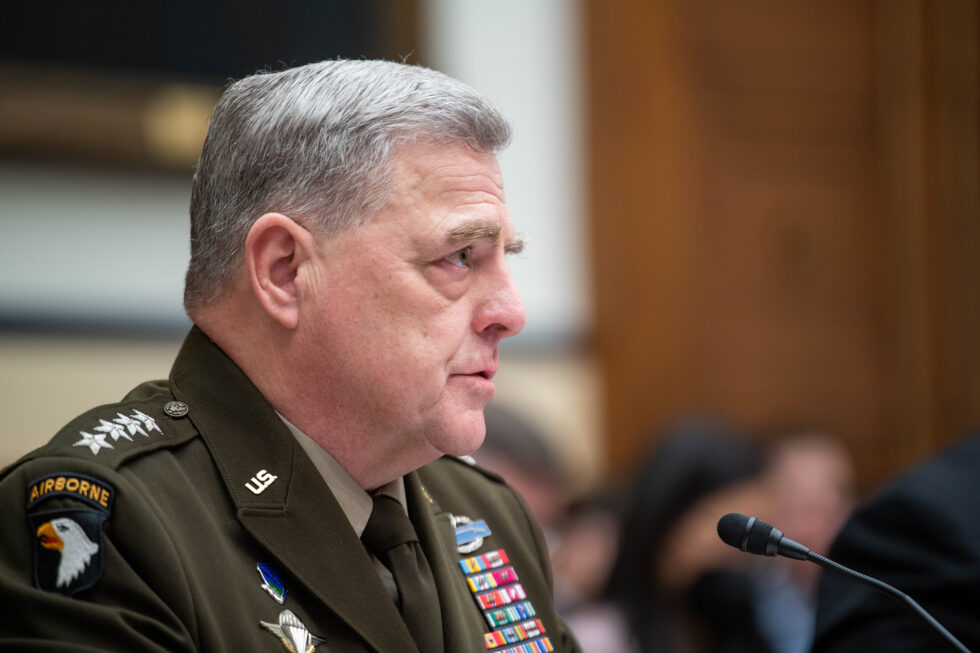China’s military grows larger and more aggressive, says top US general
According to the US’s top military general while traveling through the Indo-Pacific, China’s military has become dangerously more aggressive in recent years.

Chairman of the Joint Chiefs of Staff, General Mark Milley, said on Sunday that the number of unsafe and aggressive acts by Chinese warships and aircrafts towards American and allied forces has been rising steadily and concerningly.
China has become 'significantly' more aggressive, Gen. Mark Milley warns https://t.co/SmBea2ucUP pic.twitter.com/xW64zN1YMS
— New York Post (@nypost) July 24, 2022
Milley, who recently began reviewing every interaction between Chinese and US forces in the South China sea over the past five years, said, “The message is the Chinese military, in the air and at sea, have become significantly more and noticeably more aggressive in this particular region.”
The General made these comments on his way to Jakarta, the capital of Indonesia. There he had plans to meet with Indonesian Defense officials.
Meanwhile, Joko Widodo, the president of Indonesia, was preparing for a trip to Beijing, China to meet with Chinese president Xi Jinping.
Milley will also be traveling to Australia in the coming week to meet with other Defense Chiefs from the Indo-Pacific to discuss the worrisome behavior of China’s military as well as their escalated growth. The focus of their discussion will be the importance of maintaining peace in the international waters of the Indo-Pacific.
There also exist concerns over a new security agreement between China and the Solomon Islands which officials believe could lead to the development of a Chinese military installation in the South Pacific. Both Australia and the US have warned the Solomon Islands against allowing that.
Milley said, “This is an area in which China is trying to do outreach for their own purposes – and again, this is concerning because China is not doing it just for benign reasons. They’re trying to expand their influence throughout the region. And that has potential consequences that are not necessarily favorable to our allies and partners in the region.”






